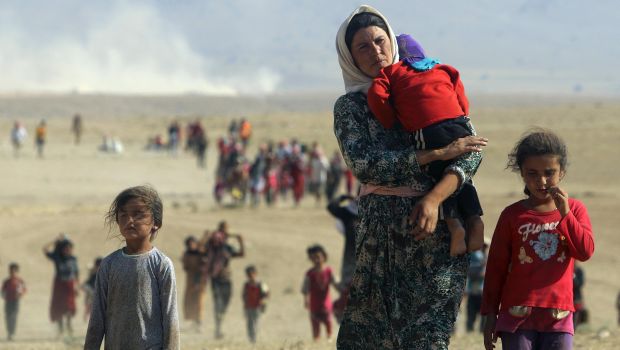At the same time that the US government is saying that training the moderate Syrian opposition will be a long-term process, the Islamic State of Iraq and Syria (ISIS) has announced the end of lessons in the schools of Manbij—a Syrian town in Aleppo governorate—until all teachers have completed courses in Islamic Shari’a law. How absurd!
Here, we are faced with two possibilities, either this call is part of ISIS propaganda and aims to demonstrate the jihadist group’s strength and indifference to the US-led anti-ISIS coalition, or it is proof that the international coalition is not making headway against the group, as outgoing US Defense Secretary Chuck Hagel claims. The latter possibility would represent a true disaster. ISIS’s decision to put a stop to school lessons in Manbij is nothing new—we saw similar decisions by the group in Deir Ezzor, Al-Bukamel and Raqqa—but it is an ample demonstration of the fact that ISIS is able to move freely and do what it likes in Syria, regardless of the anti-ISIS coalition.
Therefore, when I say that the decision that ISIS has put a stop to teaching in Manbij as absurd, what I truly mean is that this is a disaster by all accounts. More importantly, we must acknowledge that ISIS is able to do what it is doing in Syria thanks to the state of turmoil that has engulfed the US political system. Now, after previously facing issues stemming from President Barack Obama’s unwillingness to get involved, we are facing issues surrounding a general state of US weakness. This is not due to the Republican control of both the House of Representatives and the Senate, or Obama’s departure from office, but due to differences between senior members of the Obama administration.
We have a US Defense Secretary who has already submitted his resignation, and who previously criticized the Obama’s policy in Syria. We have a CIA chief who is facing a storm of criticism following the report on US intelligence methods following the 9/11 attacks. More than this, Obama is not standing with his CIA chief—in fact, there are significant areas of disconnect in the statements that have been issued by the president and his CIA director on this issue. In addition to this burning American domestic issue, Obama has previously directed strong criticism at the US’s foreign intelligence apparatus, saying that it failed to realize the threat that ISIS represented until it was too late.
At the same time that the US administration is riven by division, ISIS announced that it was halting school lessons in areas under its control across Syria in order to “train” teachers. What could be more dangerous than this? There is one issue that has not received much political or media attention over the past four years of the Syrian crisis, and threatens to create a “lost generation” of Syrian children who will not be given the education they require—whether in Syria or beyond its borders. This means that Syria, and the region, will in a few years find itself confronted with a new generation of uneducated Syrians who could fall prey to extremist ideology—whether out of anger regarding their situation, or out of general ignorance. This is something that will only serve to further complicate the already complex situation surrounding the Syrian crisis.
Even if Assad eventually loses power, the reality is that we will still be faced with major problems that require urgent solutions. All of this has happened due to international negligence, particularly on the part of Washington. The Syrian crisis will not be resolved simply by the passage of time, as some believe. We need real international leadership to solve this, and that is the one thing that is absent today.

Trackbacks/Pingbacks